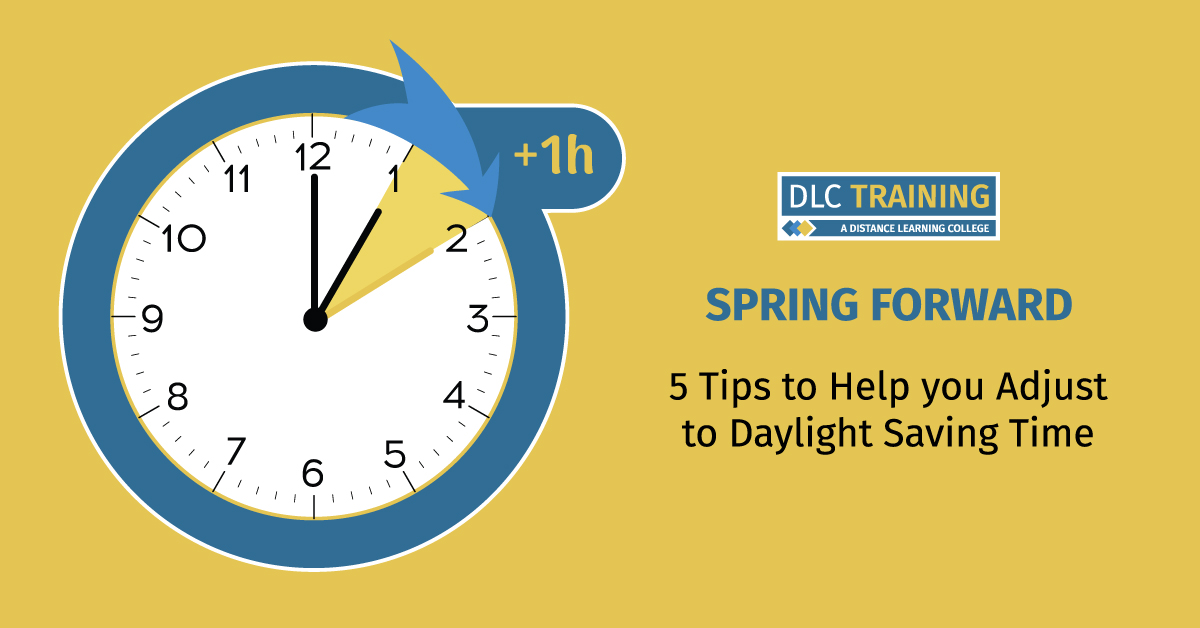
What is DST? Daylight Saving Time enables us to benefit from the daylight hours, there are a number of benefits to this, we get outdoors more for leisure activities and exercise, we use less electricity to light our homes therefore save on household energy usage, we experience fewer road traffic accidents and have the opportunity to enjoy long summer evenings.
As we prepare for our clocks to ‘spring forward’ by an hour this March, here’s some timely advice to help you manage the change!
From eating earlier, to gradually easing yourself into Sunday there are some easy steps to help you adjust to Daylight Saving Time.
- Go to bed early. Although the clocks don’t officially change until 2am on Sunday, consider changing your clock before you go to bed, encouraging you to sleep an hour earlier than usual.
- Prepare in advance. If possible gradually prepare yourself for losing an hours sleep by going to bed 15 minutes earlier each night for 4 days.
- Enjoy sunlight. Try and get outdoors as much as possible to benefit from natural daylight.
- Avoid coffee. Aim to avoid any caffeinated drinks beyond 2pm as this reduces your ability to get to sleep.
- Reduce exposure to high intensity light. Turn off your phone, computer and television well before bedtime, to reduce the stimulation to the brain.
Remember your pets won’t understand the change in time, so feeding schedules will take some adjustment over a few days.
It’s a great feeling knowing summer is on the way and the darker days of winter are behind us and thank goodness our smart phones now automatically change the time for us, no more missing appointments or turning up late for work on the Monday morning.